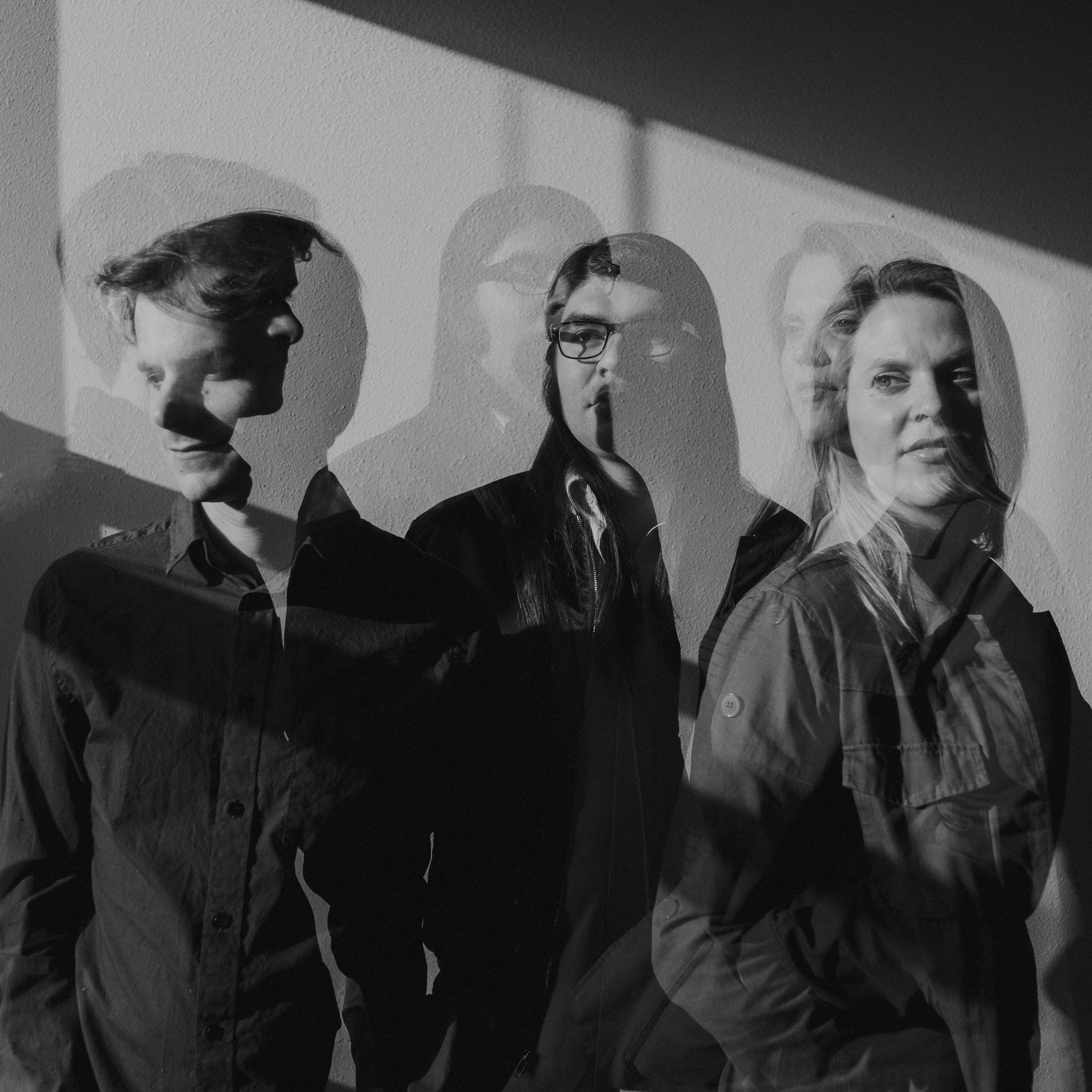String Noise, Weeks Island Point to the Worlds Connected to Cajun Music

From the cover of “Droste” by Weeks Island
Two recent releases by Louie Michot’s Nouveau Electric label situate South Louisiana music in less common contexts.
The releases on Louis Michot’s Nouveau Electric label can be seen as a reflection of Michot, but that’s not his goal. He recently wrote, “I started Nouveau Electric to give artists a home where they can feel confident that their creations will be well looked after, and available to music lovers around the world in in the long term.” Still, if he wasn’t inspired by artists on the label, he has played with them. Nouveau Electric has put out profoundly traditional music by Ethel Mae Bourque and Goldman Thibodeaux, but it has also put out music that would never have been unimaginable for tradition-minded labels. The individual releases aren’t about Michot, but they collectively work in much the same way that Ramblers’ releases do to foster a broader, contemporary understanding of the music that is a product of Cajun culture.
In 2016, Michot played a six-night residency at avant-garde sax player John Zorn’s New York City venue The Stone, and Michot was joined on these gigs by Lost Bayou Ramblers, Michot’s Melody Makers, familiar collaborators including Spider Stacy and Leyla McCalla, as well as some who were new to him. In 2018, Michot released one largely improvised show from that residency, The Stoned, which might have been better titled Swamp Ritual as the South Louisiana counterpart to Hawkwind’s psychedelic space-rock classic, Space Ritual. Recently, Nouveau Electric released another set from that residency, Le String Noise. It’s not as visionary or lysergic as The Stoned, but he was joined for the show by McCalla on cello and New York improvising violinists String Noise to produce something that didn’t exist before that night.
That lineup translated to three fiddles on the stage and made the show about how they can work together across musical vocabularies. Their version of “La Valse a Pop” is lovelier than many of the versions recorded over the years as String Noise bring harmonic ideas to the Cajun classic from outside the tradition, and Michot moves in a more avant-garde direction for the aptly named “Cajun Noise Construction” and the nearly punk “No More Beatlemania.” On “Unipolar Dance,” one fiddle—presumably Michot’s—circles a monolithic drone created by the other instruments, timidly, almost imperceptibly at first, then decisively, moving through notes that relate to the drone to play with their relationships. Immediately after that piece, “Bluerunner” not only returns to more familiar terrain in terms of song choice but the way it’s performed. Many a dance in South Louisiana was played by a fiddle-only lineup, and String Noise moves effectively toward Cajun music.
The performers shift between musical vocabularies fluidly, and even the more avant-garde moments sound like natural extensions of what came before them. No one sounds like they’re out of their depth, and if there’s a false note, it’s the concluding version of The Violent Femmes’ “Gone Daddy Gone.” It sounds like a meeting on neutral turf, but the previous half-hour shows that the turfs that Michot, McCalla, and String Noise natively occupy are more interesting. “Gone Daddy Gone” simply doesn’t offer the players as much to work with. On the stage that night in 2016, I can imagine it worked as a generous gesture to an audience that had worked through a half-hour of adventurous music, and familiar, fan-like performance aligned the performers with the audience members who also loved the song, but today at home and as a part of this album, it simply offers less than anything else on Le String Noise.
Lost Bayou Ramblers’ guitarist Jonny Campos recorded Droste under the name Weeks Island, and it reveals part of what he brings to the band. The 18-minute EP owes a lot to post-rock and the kind of rock-based ambient music that Robert Fripp and Brian Eno pioneered on No Pussyfooting (1973) and Evening Star (1975). Those albums featured soundscapes created by Fripp’s electric guitar, filtered through Eno’s electronics. On Droste, Campos lets steel guitar drones swell and decay, building shimmering, harmonic, richly textured musical structures that take shape elegantly before they drift away and reform as something equally beautiful.
The tracks don’t exactly flow from one to the next, but because Campos works with similar textures from piece to piece, the silences between tracks sound like compositional elements in one long piece, which Droste, in effect, is. I first listened to the EP on my phone without looking at the tracks, and it was on its third repeat before I realized what was happening. Like many ambient pieces, Droste has a defined length, but the implication is that it could go on forever if allowed.
The band name and the places that give the tracks their names—Point Fortuna,” “Raccoon Island,” “Fleur Pond,” and “Bayou La Chute,” and “Cyprien Bay”—invite listeners to map names that sound like rural South Louisiana locations on to these tracks, despite their profoundly electronic origins. Campos’ pieces are absolutely electric and can’t be created by the acoustic instruments associated with bayous, bays, and swamps, but that tension doesn’t create an impediment or ring false. Instead, the titles invite literal-minded listeners to hear mosquitos and the sound of the wilderness in Campos’ pieces. They provoke listeners to think about the relationship between contemporary sounds and well-aged spaces, as well as the city-born, avant-garde instrumental music and how it relates to the rural culture that gave the songs their names.
Creator of My Spilt Milk and its spin-off Christmas music website and podcast, TwelveSongsOfChristmas.com.






